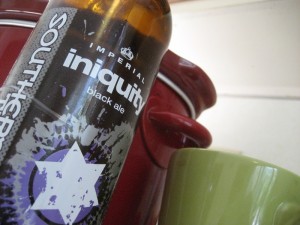Those of you who know me personally know that for many years I’ve worked as a marketing communications professional supporting some pretty big, name brand companies, including one fondly known as an anchor company here in Rochester, NY. And as it happens, over the course of my career, I’ve had occasion to write about some of the more sophisticated printing devices these companies manufacture — machines that can produce one-off items from digital files.
Since I also follow the book publishing industry, I’ve been waiting for years for the day when book publishers would embrace the technology.
Good thing I wasn’t holding my breath.
Oh, I know, per-book cost goes way up — it’s a lot cheaper, per copy, to do a traditional print run of 10,000 or a million books than produce them in onesy twosies.
But in a world where just-in-time manufacturing principles are now the norm, it would seem a no-brainer to work these POD technologies into the production stream somehow. Think about it. You’d have a database of your content on the back end. Orders come in from distributors via a front-end web portal and are automatically sent to the printer — nobody would need to touch them (lowers your overhead right there). Suddenly the backlist is relevant again, it’s available to respond to demand. And as new media arises — ebooks, say — you just hook up a new output path, kind of like the Smashwords Meatgrinder.
I suppose the idea of transitioning to such a radically different production model was too wearying for publishers. Heck, they don’t even have their rights tracked in databases yet, apparently.
That said, I wouldn’t rule out the possibility that the entire industry will shift to a just-in-time model, albeit belatedly. But in the meantime, bookstores are installing POD systems, essentially taking over the production piece of the publishing business.
The above link is a story about The Expresso Book Machine, invented by Jason Epstein, 83, the guy who also came up with the concept of mass market paperbacks(!)
The Expresso Book Machine is basically a digital POD printer + book binder.
But get this. The article’s author, Ilya Marritz, first notes:
People in the book industry revere Jason Epstein, but they are increasingly skeptical his latest innovation will take off. The Espresso Book Machine is bulky, its menu of books limited mainly to backlist and public domain titles and users can’t operate the machine on their own – they need help from trained bookstore staff.
Guys, the reason titles are limited to backlist & public domain is that the publishing industry hasn’t realized, yet, that it needs to support POD with current titles. So it’s kind of two-faced for “people in the book industry” to be “skeptical.” Instead of being skeptical, how about building an infrastructure to feed the POD stream?
Sigh.
Contrast with this a couple paragraphs later:
But the machine has proven to be a hit with customers. More than 1,000 books were printed on the machine in the first four weeks for prices starting at $8 apiece. Kurtz said the main attraction to the Espresso Book Machine is that it is a tool for self-publishing.
Not surprising that self-publishing has emerged as a strong use case. Indie writers “get it.”
But IMO, if this were marketed properly, with the proper front end, it would be a huge hit with consumers as well.
There is absolutely no reason on earth I shouldn’t be able to go online, order a book, the book gets printed at my local bookstore (or library. or supermarket) where I can pick it up — or maybe a courier brings it to my house later that day —
I should be able to do that by clicking on a link of a book review I read on a blog or online newspaper, or from my e-reader.
I should be able to do that from a kiosk in a bookstore.
Think about it. Bookstores would no longer have to be mammothly expensive warehouses (that’s all a big box store is, when you think about it — a warehouse with carpet and escalators). They could be salons, gathering spaces designed more like living rooms than commercial spaces.
Bookstore managers could stock based on real time data about what is selling or to support promotions they’re running. Poetry reading tonight? Print one or two copies of books by major poets and set them out for sale. Holiday coming up? Local paper run a review of a new title? Author in town for a signing? Ditto.
But most of your titles, you’d sell not by putting out physical copies but by generating opportunities for word-of-mouth sales and by running in-store promotions. I love golf, for instance. Think I wouldn’t notice if a local bookstore kicked off spring by hosting an event by a local teaching pro in conjunction with a sale on golf titles, make it a Masters tie-in?
The possibilities are endless, literally.
Starbucks CEO Howard Schultz once said that he envisioned Starbucks as “the third place” — the not home/not work place you spend time because it’s comfortable and familiar and you feel welcome there.
There is absolutely no reason bookstores couldn’t also become “the third place,” but only if the business model supports it–which means you have to lower overhead. Smaller footprint, no more warehousing books based on publisher push instead of local market pull, and emphasize creating communities rather than moving product.
Could happen. Would like to see it, personally. I’d hang there.

